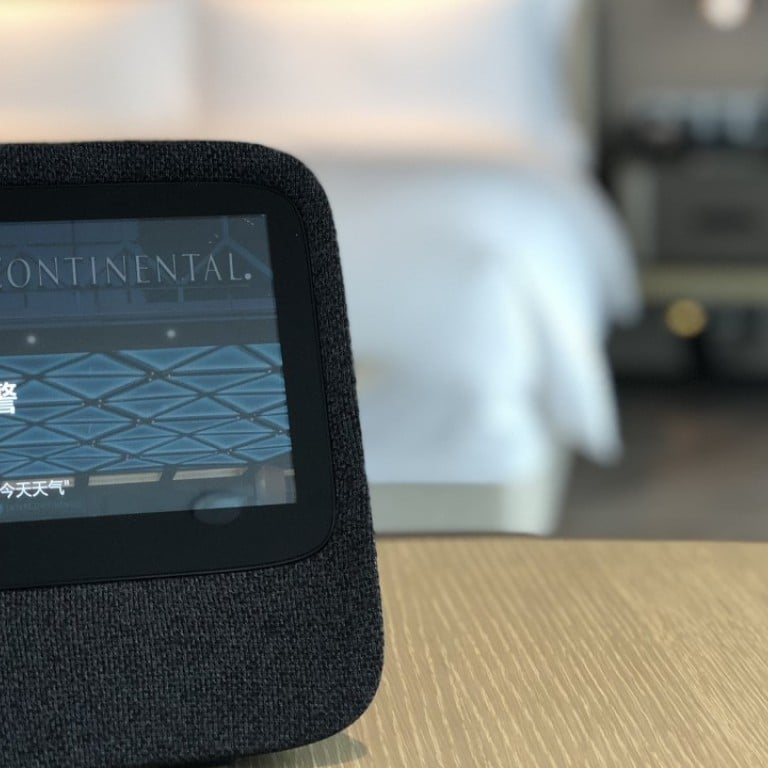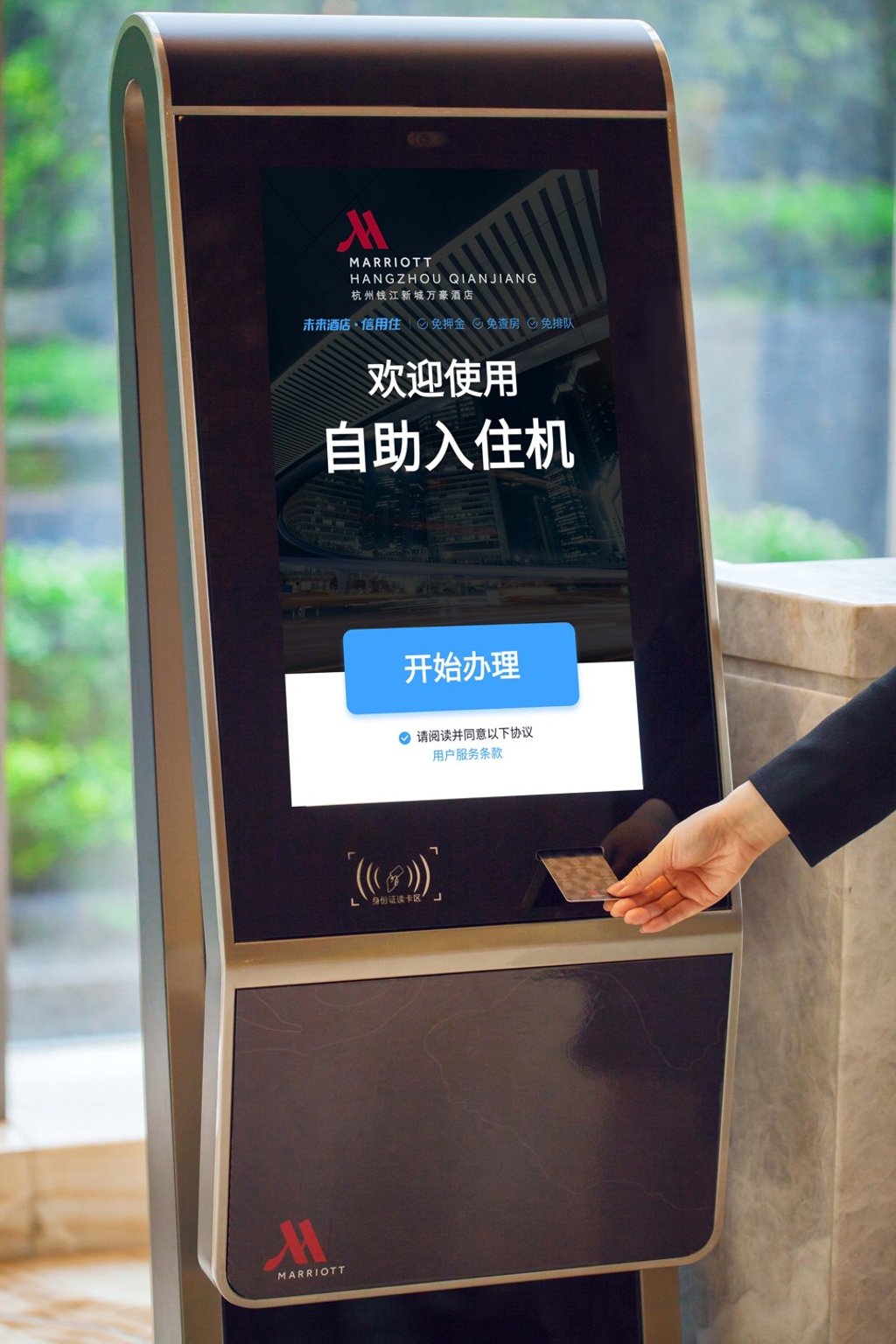China’s hotel facial recognition check-ins and AI smart rooms are here to stay

Marriott International and InterContinental Hotels launch innovations after joint ventures with mainland technology giants Alibaba and Baidu
Two international hotel chains in mainland China have started using hi-tech innovations such as check-in facial recognition sensors and artificial intelligence (AI) room service features to improve the comfort and convenience of guests.
The equipment being introduced by Marriott International and InterContinental Hotels & Resorts has been devised in collaboration with the nation’s leading technology companies.
Marriott International introduced facial recognition check-in services in July at two mainland hotels – the Hangzhou Marriott Hotel Qianjiang, in Zhejiang province, and Sanya Marriott Hotel Dadonghai Bay, in Hainan province – but it has plans to introduce the sensors at all of its worldwide properties.
The hotel group said the check-in process could normally take at least three minutes, but even longer during peak times.
However, the use of its facial recognition technology meant the check-in process could now be completed in less than a minute.
The installation of the self-service check-in terminal in the lobbies of the hotels meant Chinese guests were able to easily scan their ID cards, pose for a portrait photograph and input their contact information before the machine issued room key cards after verifying their identities and booking details.
The pilot service is part of digital initiatives as a result of a joint venture launched in August 2017 between Marriott International and Alibaba Group, the Chinese multinational e-commerce, AI and technology conglomerate, which is also the owner of the South China Morning Post.

